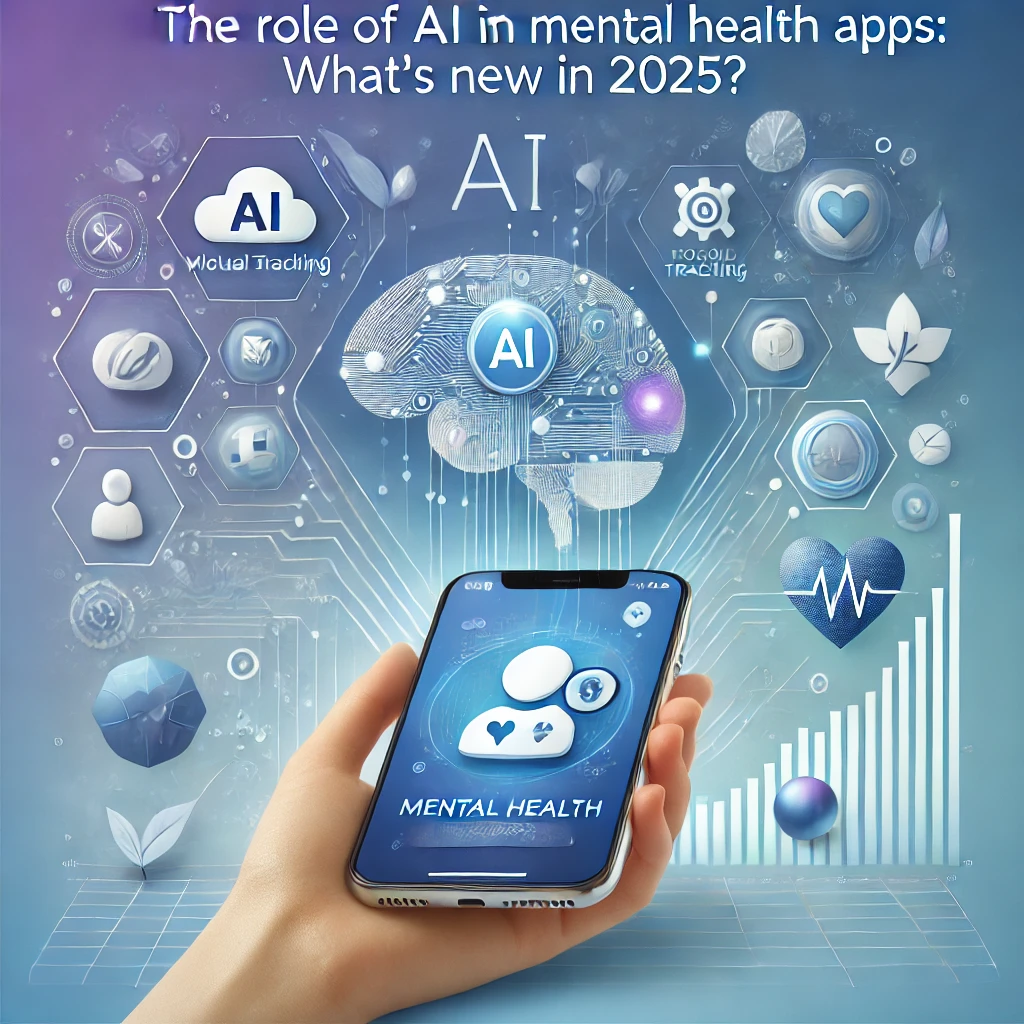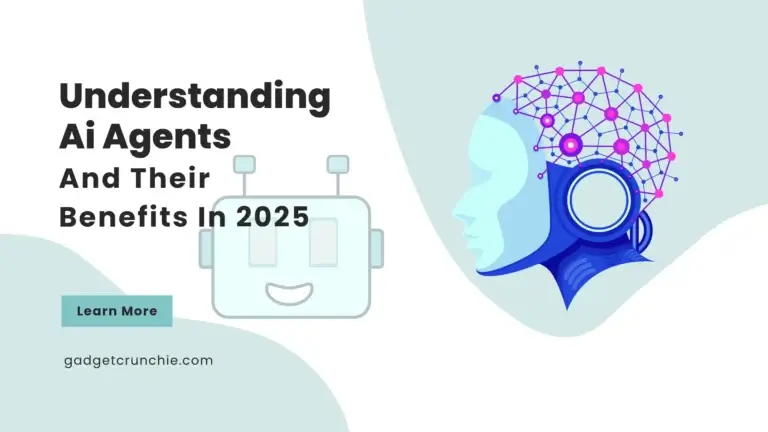The Role of AI in Mental Health Apps: What’s New in 2025?
Mental health has become a global priority, and technology is playing a pivotal role in making support more accessible and effective. By 2025, artificial intelligence (AI) is set to revolutionize mental health apps, offering personalized, real-time assistance to users. In this article, we’ll explore the role of AI in mental health apps, the latest innovations, and how these advancements are transforming the way we approach mental well-being.

1. Personalized Mental Health Support
AI is making mental health apps more personalized than ever. By analyzing user data, these apps can tailor recommendations, coping strategies, and therapy techniques to individual needs.
Innovations to Watch:
- Mood Tracking: AI algorithms analyze patterns in mood and behavior to provide personalized insights.
- Customized Therapy Plans: Apps create therapy plans based on user preferences and progress.
- Adaptive Content: AI adjusts the app’s content to match the user’s emotional state.
Impact:
- Provides more effective and relevant support.
- Helps users feel understood and cared for.
2. Real-Time Emotional Analysis
AI-powered mental health apps can now analyze emotions in real time using voice, text, and even facial recognition. This allows for immediate feedback and intervention when users need it most.
Innovations to Watch:
- Voice Analysis: Detects stress or anxiety in a user’s voice during conversations.
- Text Sentiment Analysis: Identifies emotional tone in journal entries or messages.
- Facial Recognition: Monitors facial expressions to gauge emotional well-being.
Impact:
- Offers instant support during moments of distress.
- Helps users become more aware of their emotional states.
Watch the latest technology video content to click this Link.
3. Virtual Mental Health Coaches
AI-driven virtual coaches are becoming more sophisticated, offering round-the-clock support and guidance. These virtual assistants can provide coping strategies, mindfulness exercises, and even crisis intervention.
Innovations to Watch:
- Conversational AI: Chatbots that simulate human-like conversations for emotional support.
- Guided Meditation: AI coaches lead users through mindfulness and relaxation exercises.
- Crisis Management: Immediate assistance for users experiencing severe distress.
Impact:
- Makes mental health support accessible anytime, anywhere.
- Reduces the stigma associated with seeking help.
4. Predictive Analytics for Early Intervention
AI can predict potential mental health issues before they escalate by analyzing behavioral patterns and historical data. This allows for early intervention and prevention.
Innovations to Watch:
- Behavioral Pattern Analysis: Identifies changes in sleep, activity, or social interactions that may indicate mental health concerns.
- Risk Assessment: Predicts the likelihood of conditions like depression or anxiety.
- Proactive Alerts: Notifies users or caregivers when intervention is needed.
Impact:
- Helps prevent mental health crises.
- Encourages proactive self-care.
For more insights into the future of technology, click here to explore our related articles.
5. Integration with Wearable Technology
AI-powered mental health apps are increasingly integrating with wearable devices to provide a holistic view of a user’s well-being. By combining data from wearables, these apps can offer more accurate and comprehensive support.
Innovations to Watch:
- Biometric Monitoring: Tracks heart rate, sleep patterns, and stress levels.
- Activity-Based Insights: Correlates physical activity with mental health.
- Personalized Recommendations: Suggests activities or interventions based on biometric data.
Impact:
- Provides a more complete picture of mental and physical health.
- Encourages a balanced approach to well-being.
6. Gamification and Engagement
AI is making mental health apps more engaging by incorporating gamification elements. These features motivate users to stay consistent with their mental health practices.
Innovations to Watch:
- Reward Systems: Users earn points or badges for completing tasks like journaling or meditation.
- Interactive Challenges: Gamified activities that promote mindfulness and relaxation.
- Progress Tracking: Visualizes achievements and improvements over time.
Impact:
- Increases user engagement and adherence to mental health practices.
- Makes self-care fun and rewarding.
7. Ethical AI and Data Privacy
As AI becomes more integrated into mental health apps, ensuring ethical use and data privacy is crucial. Developers are focusing on creating secure, transparent, and user-friendly platforms.
Innovations to Watch:
- Data Encryption: Protects sensitive user information.
- Transparent Algorithms: Ensures users understand how their data is used.
- User Control: Allows users to manage their data and privacy settings.
Impact:
- Builds trust between users and app developers.
- Ensures compliance with data protection regulations.
Challenges and Considerations
While AI offers incredible potential for mental health apps, there are challenges to address:
- Accuracy: Ensuring AI algorithms provide reliable and accurate insights.
- Accessibility: Making these apps affordable and available to all.
- Human Touch: Balancing AI support with the need for human connection in therapy.
FAQs on AI in Mental Health Apps (2025)
2. Can AI replace human therapists?
While AI can complement therapy by offering immediate support and insights, it cannot fully replace human therapists. The empathy and nuanced understanding provided by human professionals remain irreplaceable for complex mental health needs.
3. How secure is my data on AI mental health apps?
Reputable AI mental health apps use advanced encryption and privacy measures to protect user data. Always choose apps that are transparent about their data policies and comply with privacy regulations like GDPR or HIPAA.
Conclusion: A Brighter Future for Mental Health
The role of AI in mental health apps is set to expand dramatically by 2025, offering personalized, real-time, and accessible support to users worldwide. From virtual coaches to predictive analytics, these innovations are transforming how we approach mental well-being.
As technology continues to evolve, the potential for AI to improve mental health outcomes is limitless. Which AI-driven mental health feature are you most excited about? Let us know in the comments below! And for more insights into the future of mental health technology, click here to explore our related articles.
Focus Keyword: AI in Mental Health Apps 2025
Meta Description: Discover how AI is revolutionizing mental health apps in 2025, from personalized support to real-time emotional analysis. Explore the future of mental well-being today!



